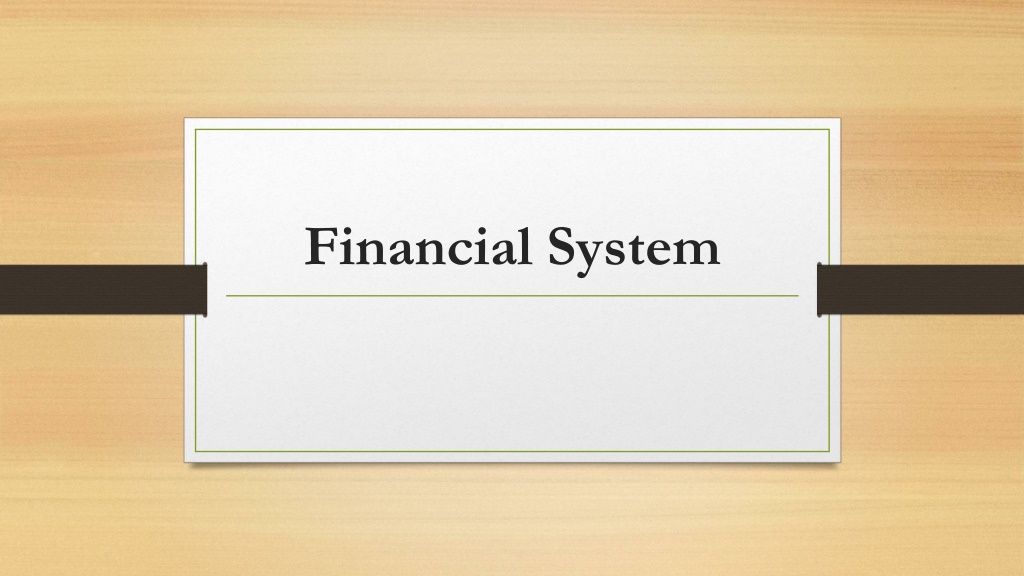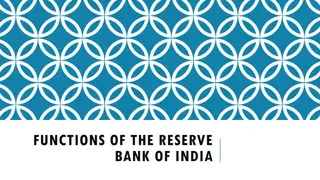Understanding the Functions of a Financial System
A financial system acts as an intermediary between savers and investors, facilitating the flow of funds to areas of deficit. It includes institutions, instruments, and markets to promote savings and efficient allocation for investment or consumption. Key functions include currency regulation, banking services, agency services, credit control, stability maintenance, fund deployment, liquidity management, and price determination.
Download Presentation

Please find below an Image/Link to download the presentation.
The content on the website is provided AS IS for your information and personal use only. It may not be sold, licensed, or shared on other websites without obtaining consent from the author. Download presentation by click this link. If you encounter any issues during the download, it is possible that the publisher has removed the file from their server.
E N D
Presentation Transcript
Meaning of Financial System A financial system functions as an intermediary between savers and investors. It facilitates the flow of funds from the areas of surplus to the areas of deficit. It is concerned about the money, credit and finance. These three parts are very closely interrelated with each other and depend on each other. A financial system may be defined as a set of institutions, instruments and markets which promotes savings and channels them to their most efficient use. It consists of individuals (savers), intermediaries, markets and users of savings (investors). In the worlds of Van Horne, financial system allocates savings efficiently in an economy to ultimate users either for investment in real assets or for consumption .
Functions of Financial System The functions of a good financial system are manifold. They are as follows: 1. Regulation of currency: As a part of the financial system, central banks generally control the supply of a currency and interest rates, while currency traders control exchange rates. 2. Banking functions a. to assemble capital and make it effective; b. to receive deposits and make collections; c. to check out and transfer funds; d. to discount or lend; e. to exercise fiduciary or trust powers; f. to issue circulating notes.
3. Performance of agency services and custody of cash reserves: Different constituents of the financial system act as the agents for their clients. They buy and sell shares and bonds, receive and pay utility bills, premiums, dividends, rents and interest for their clients. 4. Management of national reserves of international currency: Various parts of financial system help the economy in particular and polity in general to manage international reserve. 5. Credit control: Financial system controls credit by serving the dual purpose of increasing sales revenue by extending credit to customers who are deemed a good credit risk, and minimizing risk of loss from bad debts by restricting or denying credit to customers who are not a good credit risk.
6. Ensure stability of the economy: Financial system performs the function of administering national, fiscal, and monetary policy to ensure the stability of the economy. 7. Supply and deployment of funds for productive use: Financial markets permit the transfer of funds (purchasing power) from one agent to another for either investment or consumption purposes. 8. Maintaining liquidity: Financial markets provide the holders of financial assets with a chance to resell or liquidate these assets. 9. Price determination: Financial markets provide vehicles by which prices are set both for newly issued financial assets and for the existing stock of financial assets.
10. Information aggregation and coordination: Financial markets act as collectors and aggregators of information about financial asset values and the flow of funds from lenders to borrowers. 11. Risk sharing: Financial markets allow a transfer of risk from those who undertake investments to those who provide funds for those investments. 12. Improve efficiency: Financial markets reduce transaction costs and information costs.























